Basic Addition Skills Easy Math Worksheets for Ages 3-4
5 filtered results
-
From - To
Introduce math basics to your little learner with our "Basic Addition Skills Easy Math Worksheets for Ages 3-4." These engaging and colorful worksheets are designed to make learning addition fun and straightforward for preschoolers. Each worksheet provides simple, hands-on activities that help children practice counting and basic addition, fostering a love for numbers early on. Perfect for both classroom and at-home learning, our worksheets ensure young kids grasp essential math concepts effortlessly through playful and interactive exercises. Start building a strong mathematical foundation today with our easy-to-use, kid-friendly worksheets.
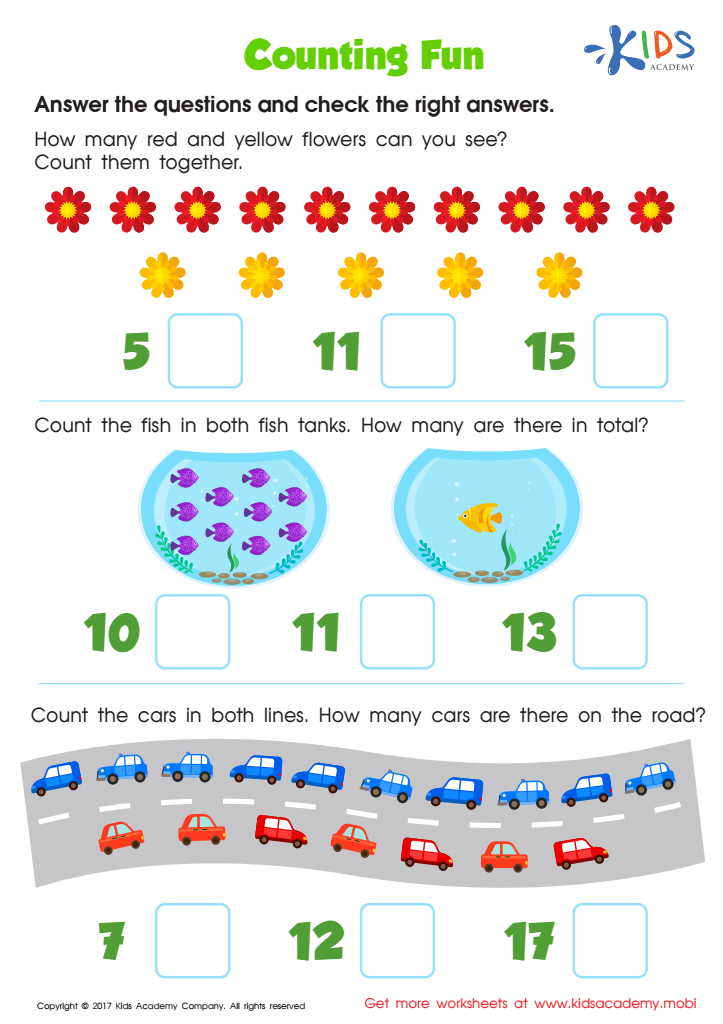

Counting Fun Worksheet
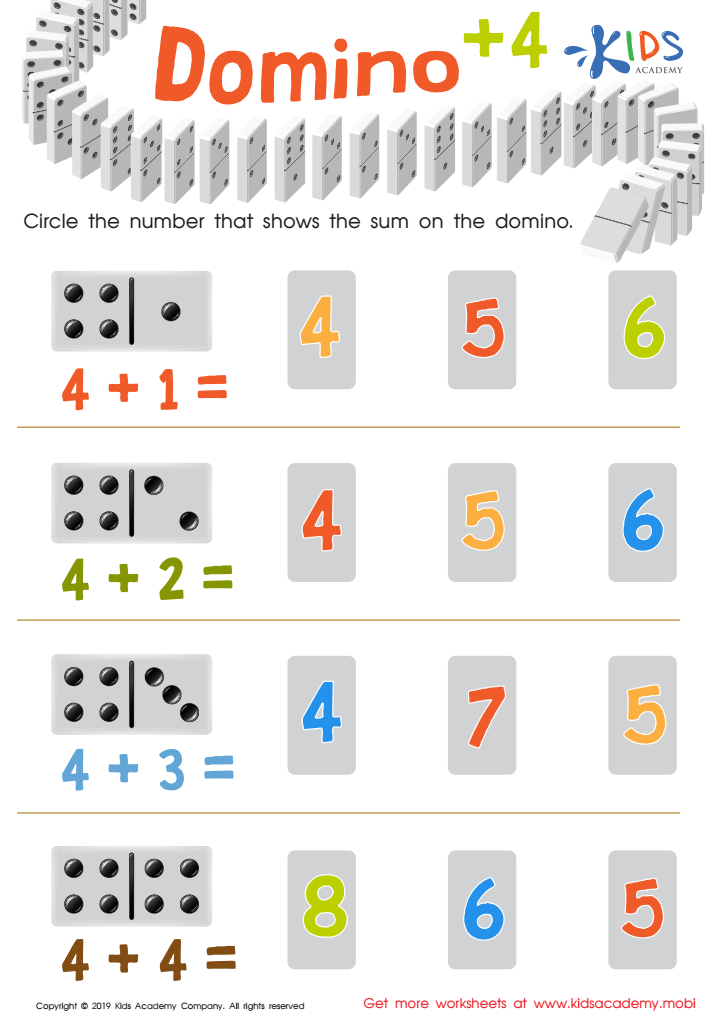

Domino +4 Worksheet
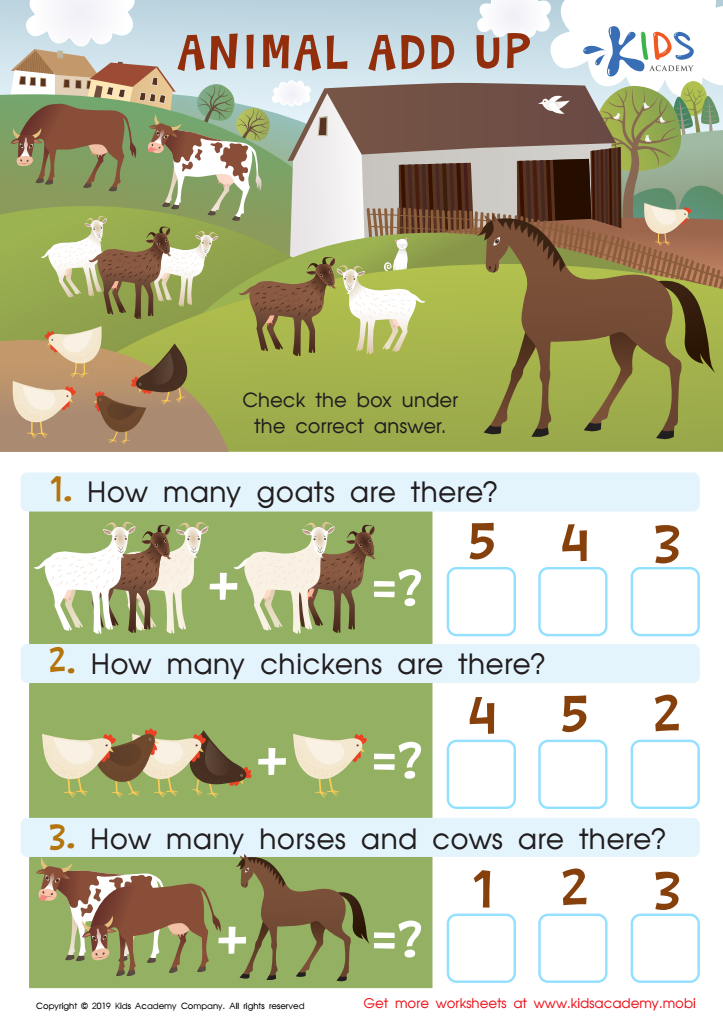

Animal Add Up Worksheet
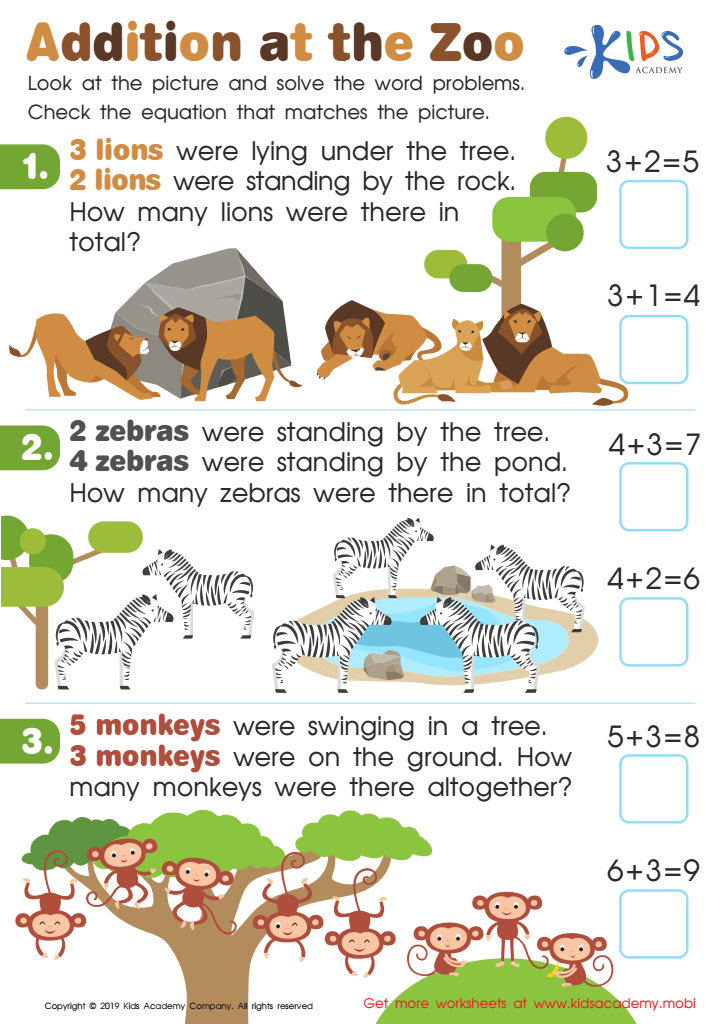

Addition at the Zoo Worksheet
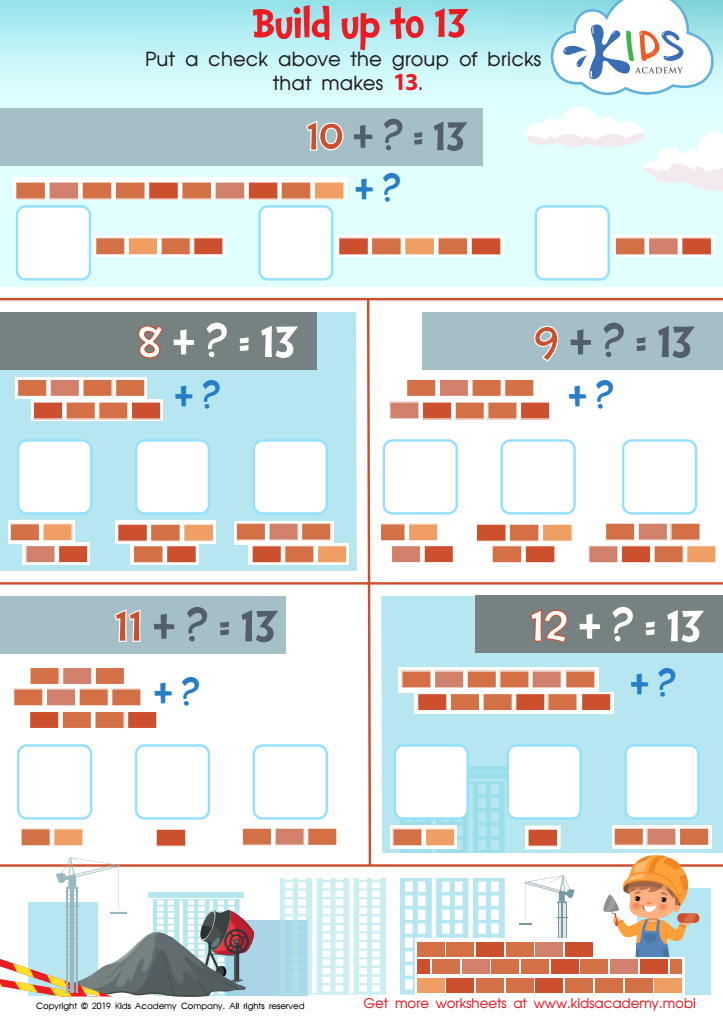

Build up to 13 Worksheet
Basic addition skills are fundamental for early childhood development, serving as the building blocks for more advanced mathematical concepts. For children ages 3-4, mastering these skills is crucial not only for their academic progress but also for their overall cognitive development.
Early exposure to basic addition helps stimulate young minds, enhancing their problem-solving abilities, logical thinking, and memory. At this age, children are highly capable of absorbing new information and developing neural pathways that benefit them throughout their lives. By engaging in easy math activities, children improve their attention spans, fine motor skills, and hand-eye coordination.
For parents, investing time in teaching basic addition strengthens the parent-child bond and creates a positive, supportive learning environment at home. Regular practice with addition concepts can make math less intimidating for children, reducing future anxiety and promoting a love for the subject.
Teachers play a pivotal role in this developmental stage as well. By incorporating fun and interactive addition exercises into the curriculum, they help students build confidence and establish a solid mathematical foundation early on. This foundation is essential as it prepares them for more complex topics, such as subtraction, multiplication, and division.
In summary, paying attention to basic addition skills at an early age sets the stage for academic success and fosters a lifelong love of learning and critical thinking.
 Assign to My Students
Assign to My Students





















